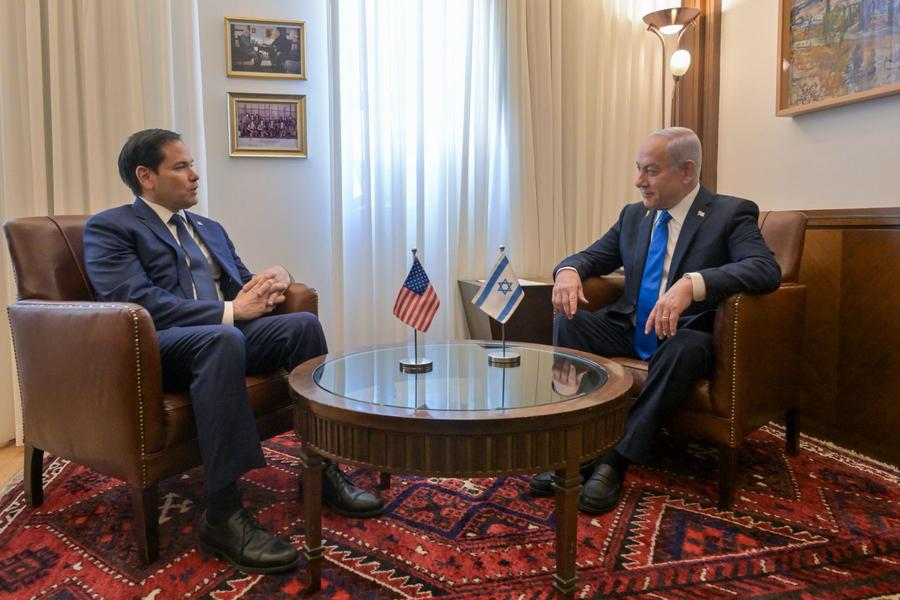

Israeli Prime Minister Benjamin Netanyahu, speaking alongside U.S.
Secretary of State Marco Rubio in Jerusalem, said on Sunday Israel and
the United States are working "in full cooperation" on issues concerning
the Gaza Strip. Netanyahu
said he and Rubio had a "very productive" discussion on U.S. President
Donald Trump's "bold vision for Gaza's future," which includes
relocating Gaza's Palestinian population to neighboring countries and
turning the enclave into the "riviera" of the Middle East. Thanking
the United States for its "unequivocal" support for Israel's policies
in Gaza, Netanyahu said he and Trump "have a common strategy," while
noting that "we can't always share the details of this strategy with the
public, including when the gates of hell will be opened, as they surely
will if all our hostages are not released until the last one of them." Netanyahu
also emphasized U.S.-Israel coordination regarding Iran, saying the two
countries "work shoulder to shoulder" to counter Tehran's nuclear
program and regional military activities. He added both sides agreed
that Iran "must not have nuclear weapons" and that "Iran's aggression in
the region has to be rolled back." Rubio,
in his remarks, said the hostages still held in Gaza "need to come
home, they need to be released," adding, "That must happen. It's not
optional." According
to Rubio, Trump "has been very clear that Hamas cannot continue as a
government (governing body) or military force," arguing that as long as
the group remains in power, "peace becomes impossible." "It must be eradicated, it must be eliminated," he said. Rubio also defended Trump's vision for Gaza's future, calling it "something new" that requires "courage and vision." Rubio
arrived in Israel late on Saturday on his first trip to the Middle East
since taking office, as Trump's proposal on Gaza faced rejection and
condemnation from states in the region.










